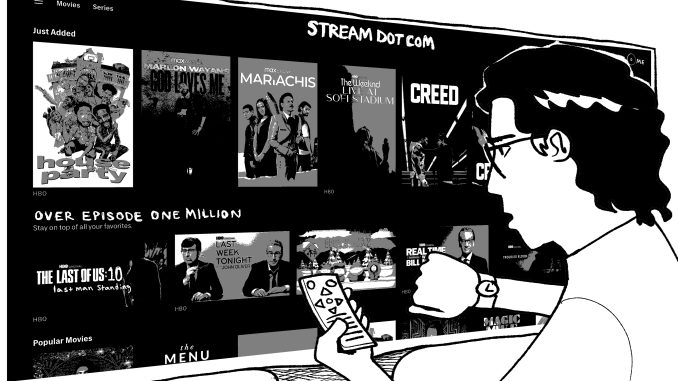
Shea Stevenson
The (very good) HBO series “Succession” announced recently that the upcoming fourth season is going to be its final season. This is fantastic news, and I sincerely wish the showrunners had been forced to wrap it up with the time they had in season 3, but this will do. This might seem like a weird thing for a fan to think, but I want what’s best for my shows, and what’s best for my shows is to get to the point.
A part of the reason I’ve been so antsy for “Succession” to end is that, unlike a lot of other stuff on TV or otherwise, it’s rather well-written. As a consequence of that good writing, I know that if these writers had a point they were building towards, they could have gotten there by now. We’re talking about approximately 29 hour-long episodes, or something like 29 hours of show. The sorts of complex, interesting movies that these writers draw their inspiration from are each around three hours tops. There’s simply no way that these first three seasons of “Succession” have such nuanced points to make that it needs enough space to fit the runtime of “The Godfather” ten times over. Usually stuff is written poorly enough that I know they couldn’t have made a good coherent point regardless, but with “Succession,” it’s just good enough that I’m certain they could do it with more respect for my time.
Which, of course, is not the paramount consideration in making movies or TV. For a lot of people, the appeal is the time sink; they prefer to get lost in a show and never be worried about it ending. There’s nothing wrong with that, but I have the mic right now, and I think there’s never been a show that needed more than 20 hours to get its point across. Even that seems high. But it also misses the point of (perhaps) most TV writing; there is no point! Obviously! We ride this television-producing money horse until it croaks. Each episode is an advertisement for the next, each season is a plea for loud enough demands that the studio will bankroll another, and so on. But if that goes on long enough (which isn’t very long) it becomes, considered next to things that do have endings in mind, incredibly poor bang-for-buck if you want to think about it for more than ten minutes.
Jon Favreau, base-hitter Marvel and Star Wars director (current showrunner of “The Mandalorian”), recently said that this sort of on-and-on storytelling is what he’s going for. “It’s not like there’s a finale that we’re building to that I have in mind. Quite the contrary, I love for these stories to go on and on,” Favreau told Total Film.
And Jon, fair enough, I have to respect the philosophical clarity of purpose, but come on. For me, a spell is broken when an author admits they’re flying by the seat of their pants.
It’s concerning that a lot of properties would, in concept and creativity, be great two hour movies but are stretched thin across a television format. If the Wachowski sisters pitched “The Matrix” today, it wouldn’t end up being a tight, action-packed, two-hour movie. It would be a ten-hour-long first season, full of diversions and incredibly detailed but unnecessary lore. It would be bloated and worse for it, becoming a series that someone figured is more profitable. Shows like “Severance,” “Our Flag Means Death,” and “Barry” would be great stand-alone movies, but are in the wrong medium because companies would rather keep your eyes on their website as long as possible than give you something worth remembering.
At the end of the day, we will each have to make peace with how we’ve spent our time on Earth, and I gotta say, I’d rather watch 10 movies that know their points than a show that doesn’t even know where it’s going or what it’s saying.
